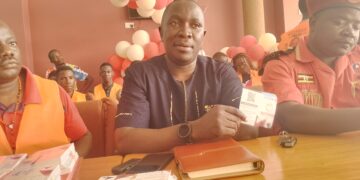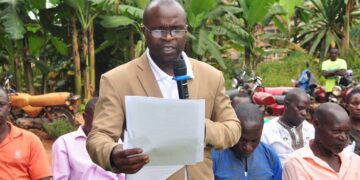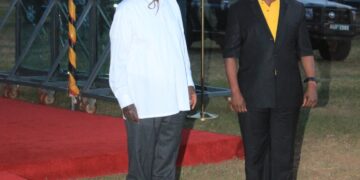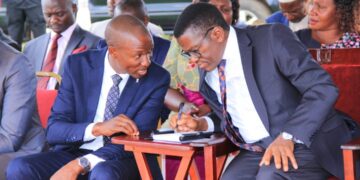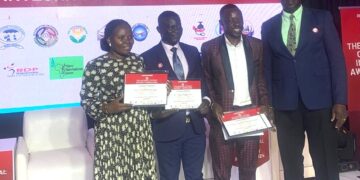The African Commission on Human and Peoples’ Rights (ACHPR) has written to President Yoweri Museveni, raising serious concerns about ongoing human rights violations in Uganda, particularly highlighting the arrest, assault, and summary conviction of prominent human rights lawyer Eron Kiiza.
The Commission’s concerns were officially tabled during the ongoing 83rd Ordinary Session of the ACHPR, currently underway in Banjul, Gambia. Uganda’s delegation to the session is led by Deputy Attorney General Jackson Kafuuzi.
In a strongly worded communication, the Commission criticized the actions taken against Kiiza on January 7, 2025, during a high-profile military court session in Kampala.
Kiiza, who was representing opposition leader Dr. Kizza Besigye and FDC member Haji Obeid Lutale, was physically barred by soldiers from entering the defense section of the courtroom.
His protest—shouting and banging on the courtroom barricade—was met with force. Soldiers assaulted Kiiza, removed him from the courtroom, and placed him in the dock beside his clients.
Later that day, the military court convicted Kiiza of contempt and sentenced him to nine months at Kitalya Prison, without access to due process or a fair trial.
The International Bar Association (IBA) has condemned the incident, describing the summary trial and punishment as a “grave violation” of multiple international and constitutional protections, including the right to liberty, a fair hearing, and protection from inhuman or degrading treatment.
The IBA cited Uganda’s obligations under its own Constitution—specifically Articles 23, 24, 28, and 44—as well as international instruments such as the African Charter on Human and Peoples’ Rights, the UN Convention Against Torture, and the International Covenant on Civil and Political Rights.
“Kiiza’s treatment contravenes not only the Ugandan Constitution but also basic international standards for the independence of the legal profession,” the IBA said in a statement, noting violations of the UN Basic Principles on the Role of Lawyers and the administration of justice through military tribunals.
The ACHPR also expressed broader concern about the deteriorating human rights situation in Uganda, including attacks on journalists and the detention of university students participating in peaceful protests.
At least 18 journalists were assaulted by security forces in March while covering by-elections in Kawempe North, with some sustaining serious injuries.
Five others were attacked earlier during campaign coverage, one nearly losing vision in his left eye. All journalists were clearly identifiable when attacked.
In response to growing pressure, the Uganda People’s Defence Forces (UPDF) announced on March 13 that it would investigate the incidents.
However, UPDF spokesperson Chris Magezi dismissed the attacks as stemming from “misunderstanding and miscoordination,” suggesting journalists had been mistaken for violent supporters.
Deputy Attorney General Kafuuzi, addressing the Commission in Banjul, defended Uganda’s human rights record, stating: “Uganda is a constitutional democracy governed by law. Chapter Four of our Constitution enshrines a bill of rights and provides for the protection and promotion of fundamental freedoms.”
He further justified Kiiza’s conviction, saying: “During the trial of Dr. Kiiza Besigye at the General Court Martial, advocate Eron Kiiza’s conduct was deemed contemptuous. As a result, he was convicted and given a custodial sentence.”
Kafuuzi added that the government “does not condone violations” and stressed Uganda’s commitment to protecting journalists, saying, “The government has put in place effective laws and measures to establish a safe and enabling environment for journalists to work without fear.”
Despite these assurances, rights groups and legal observers argue that the situation in Uganda is worsening, particularly regarding the independence and safety of legal professionals, journalists, and political dissenters.
The ACHPR, a quasi-judicial body established under the African Charter on Human and Peoples’ Rights, is expected to issue recommendations at the close of the session on May 22.









